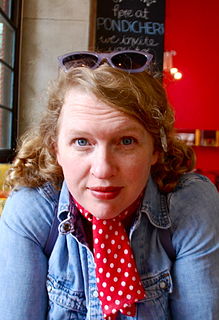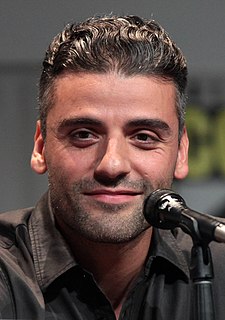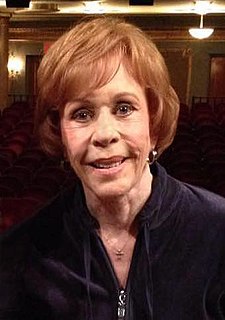A Quote by Jed Mercurio
I like to write about characters who are conflicted.
Quote Topics
Related Quotes
I don't write about love because it makes for easy, passive heroes. I write about how love makes my characters more autonomous, more self-possessed, more opinionated and powerful. I write about characters who pursue relationships that make them the people they want to become. I write about love as a superpower.
I don't know who they are[my characters] . They're entirely invented characters. Maybe that's how I've been able to write so many books, because there are no boundaries for me. I can write a completely fantastical story like "Swept Away" or "Blinded by the Light" and then a non-comic drama like "Chicxulub" or something like "Birnam Wood" that has autobiographical underpinnings. Why not?
You can write about a country without taking a stand, but you cannot write about a country without noting that there's history, and that there's politics going on. To me, that's the same if you write about America. You don't have to write about politics, but the politics have to be present in the characters.
If you get the characters right you've done sometimes nearly half the work. I sometimes find I get the characters right then the characters will often help me write the book - not what they look like that's not very important - what people look like is not about their character. You have to describe the shape they leave in the world, how they react to things, what effect they have on people and you do that by telling their story.
Some people say, 'Well you're a man; how do you write about women or girls when you don't know about them?' Well, I've got my imagination, and I can write about women. Yes, I'll never be pregnant and give birth to children, but I can imagine a bit of what it's like. When you create characters, it's just about making them really real to people.
The first act of insight is throw away the labels. In fiction, while we do not necessarily write about ourselves, we write out of ourselves, using ourselves; what we learn from, what we are sensitive to, what we feel strongly about--these become our characters and go to make our plots. Characters in fiction are conceived from within, and they have, accordingly, their own interior life; they are individuals every time.
Besides being asked why I write about young characters, I am often asked how I write about young characters. How do I throw myself across the chasm of full adulthood to relive that period? I guess I don’t, really. Age is not so much a feature of your character, as the spot where you stand for a pretty fleeting time on the arc of your life.






































